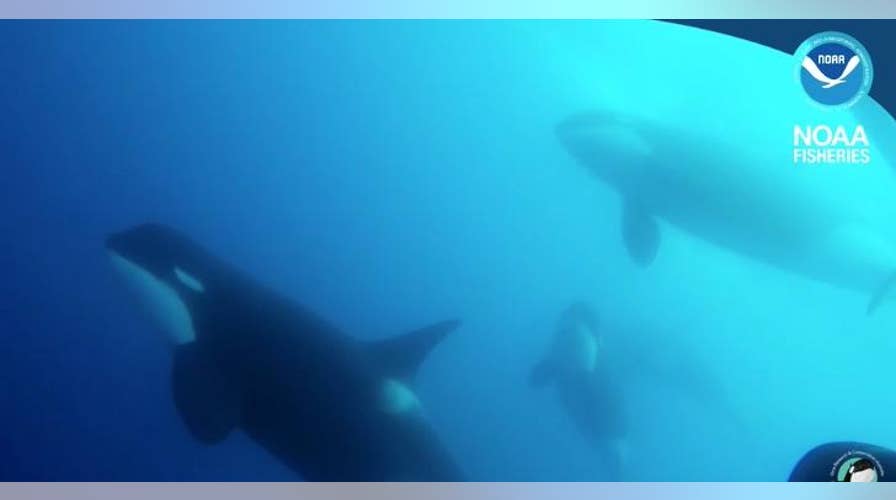Mystery Killer Whales discovered in Chile
Scientists may have discovered a new species of Killer Whales off Cape Horn, Chile.
Scientists have spotted what may be a new species of killer whale off the southern tip of Chile.
The National Oceanic and Atmospheric Administration (NOAA) says that the orcas, known as Type D, have long been shrouded in mystery. The orcas, NOAA explains, in a statement, “were previously known only from a beach stranding more than 60 years ago, fishermen’s stories, and tourist photographs.”
An international team of scientists got their first live glimpse of the whales off Cape Horn in January 2019. Experts note that the mammals have a different body shape and color pattern compared to other orcas. Specifically, the orcas have a more rounded head and a more pointed dorsal fin than “regular” orcas. They also have a tiny white eyepatch, according to the government agency.
KILLER WHALES SURROUND NEW ZEALAND WOMAN IN STUNNING DRONE FOOTAGE
Using a crossbow dart, scientists took tiny pieces of skin as genetic samples from the orcas to determine whether they are indeed a new species.
“We are very excited about the genetic analyses to come,” said Bob Pitman, a researcher from NOAA Fisheries’ Southwest Fisheries Science Center in La Jolla, California. “Type D killer whales could be the largest undescribed animal left on the planet and a clear indication of how little we know about life in our oceans.”
The first record of the orcas was in 1955 when 17 of the animals stranded on the coast of New Zealand. Photos taken decades later appear to show sightings of the mysterious orcas in areas such as the southern Indian Ocean, and in waters north of the Antarctic Circle.
KILLER WHALES ARE DYING OFF IN THE PACIFIC NORTHWEST
“In the next few months, the DNA samples should finally reveal just how different the Type D is from other killer whales,” said NOAA.
The research highlights the potential for fascinating discoveries in the animal kingdom.
In another project, experts recently revealed that a tortoise thought to be extinct for 113 years has been rediscovered on a remote volcanic island in the Galapagos.
CLICK HERE TO GET THE FOX NEWS APP
The amazing reptile find was made last month during an Animal Planet expedition led by biologist and “Extinct of Alive” host Forrest Galante. The Fernandina Tortoise, which was thought to have become extinct in 1906, was spotted on Feb. 17.
Follow James Rogers on Twitter @jamesjrogers









































